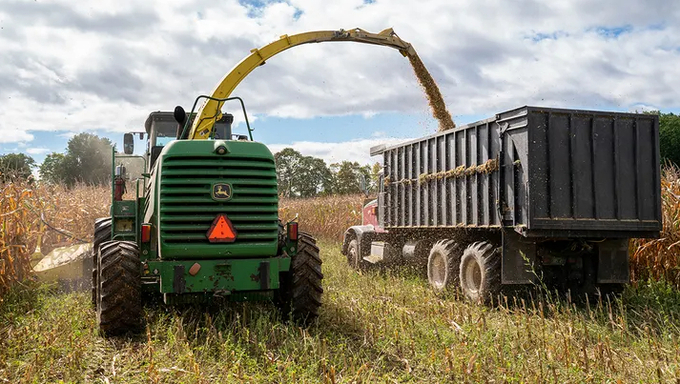June 17, 2025 | 03:41 GMT +7
June 17, 2025 | 03:41 GMT +7
Hotline: 0913.378.918
June 17, 2025 | 03:41 GMT +7
Hotline: 0913.378.918

Mexico's proposed ban on genetically modified corn will "affect farmers all over the United States," Hinkel Farms' Elizabeth Hinkel said on "Mornings with Maria" Tuesday, January 31, 2023. Photo: Getty Images
A regulatory move within Mexico’s agricultural sector has U.S. farmers concerned it will "corn-er" their corn crop production.
"Most farmers, my generation and younger, have never even used conventional corn. We're not set up to do it. We don't have the equipment to do it," Hinkel Farms' Elizabeth Hinkel told FOX Business’ Madison Alworth on "Mornings with Maria" Tuesday. "So it would be a huge investment if we had to go back to growing conventional. And on top of that, our yields would be decreased."
American farmers are headed to Capitol Hill to voice concerns about Mexico’s proposed ban on U.S. imports of genetically modified corn, reportedly warning the move could become the most catastrophic thing to happen to corn farmers.
Mexico represents America’s biggest buyer of corn, purchasing more than $10 billion worth of yellow and white U.S. corn last season alone.
"Even though here in Pennsylvania, our corn stays fairly local, our price is still determined by the board," Hinkel explained. "So if that price goes down, it's going to affect farmers all over the United States, no matter where their corn is being sold."
Farmers remain husky about Mexico’s GMO ban as they fear it’ll hit their bottom line.
"I just can't even picture in my mind what this is going to do," Hinkel said. "It's farmers from one end of the United States to the other. It doesn't matter where you sell it or what it's used for, it's going to have an effect."
With the ban set to take effect in 2024, Mexico has claimed that the regulation would help increase its own domestic production. Last week, U.S. trade representative Jayme White met with Mexico’s Under Secretary of Economy for Foreign Trade Alejandro Encinas to further discuss the GMO decision and the countries’ future relations.
Following the meeting, the USDA released this statement: "Mexico's proposed approach, which is not grounded in science, still threatens to disrupt billions of dollars in bilateral agricultural trade, cause serious economic harm to U.S. farmers and Mexican livestock producers, and stifle important innovations needed to help producers respond to pressing climate and food security challenges."
A fifth-generation Nebraska corn farmer, who mainly grows white corn for Mexican consumption, noted he wouldn’t switch to growing non-GMO corn due to environmental and financial consequences.
"Our destinies are tied together. They need us as much as we need them," Nebraska Corn Growers Association Chairman Andy Jobman also told Alworth on Tuesday. "And so we really need to come to the table and just resolve this issue and allow GMO corn to continue going into Mexico."
As Mexico prepares for the potential ban, the country, in the meantime, has passed regulation that discourages exports, including a 50% tariff on any white corn leaving the nation.
(foxbusiness)

(VAN) Extensive licensing requirements raise concerns about intellectual property theft.

(VAN) As of Friday, a salmonella outbreak linked to a California egg producer had sickened at least 79 people. Of the infected people, 21 hospitalizations were reported, U.S. health officials said.

(VAN) With the war ongoing, many Ukrainian farmers and rural farming families face limited access to their land due to mines and lack the financial resources to purchase needed agricultural inputs.

(VAN) Vikas Rambal has quietly built a $5 billion business empire in manufacturing, property and solar, and catapulted onto the Rich List.

(VAN) Available cropland now at less than five percent, according to latest geospatial assessment from FAO and UNOSAT.

(VAN) Alt Carbon has raised $12 million in a seed round as it plans to scale its carbon dioxide removal work in the South Asian nation.

(VAN) Attempts to bring down the price of the Japanese staple have had little effect amid a cost-of-living crisis.